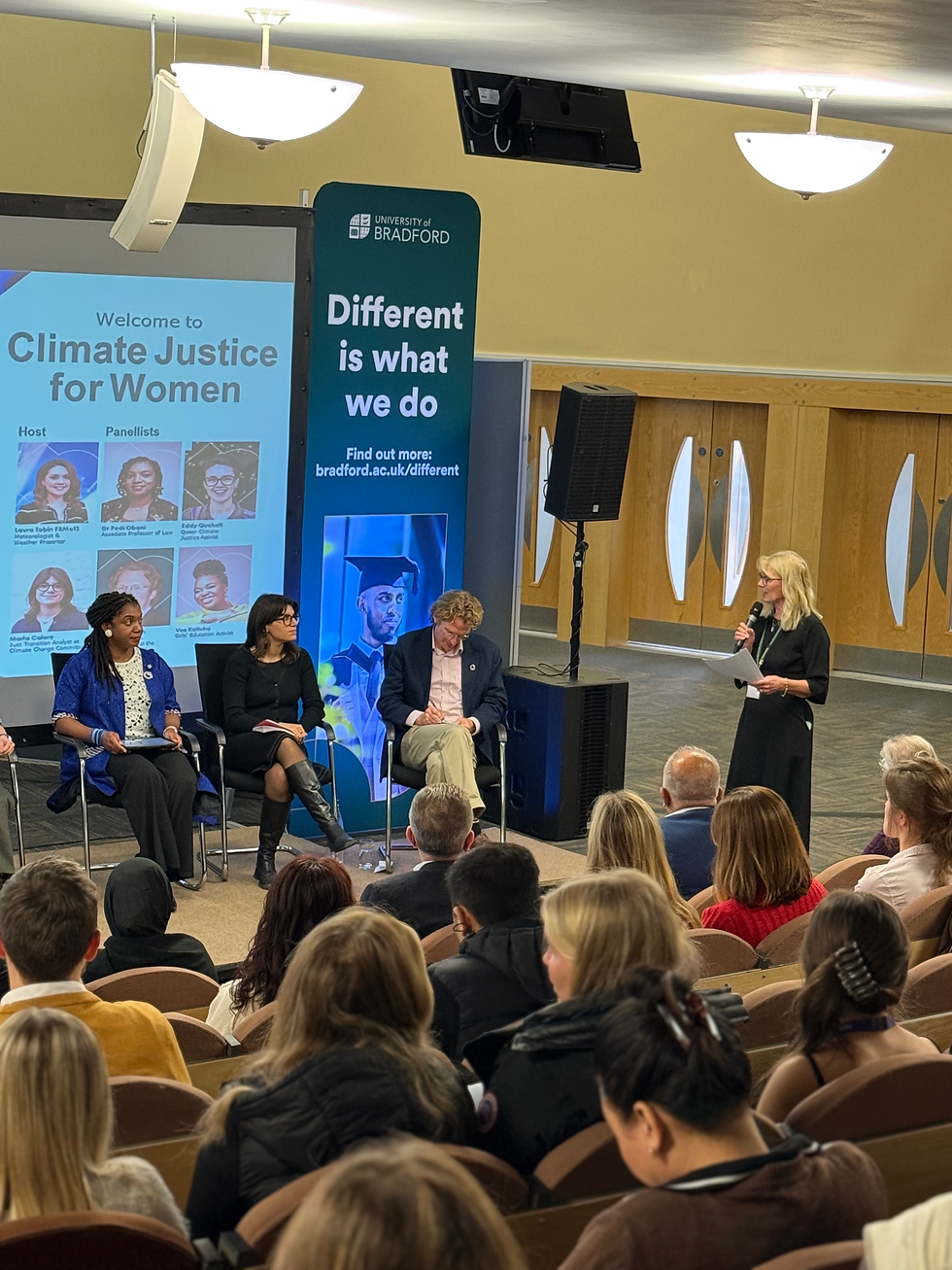Statement from the Racial Justice Network
- Sep 16, 2024
- 4 min read
Updated: Sep 17, 2024
The Racial Justice Network have today released the below public statement following their departure from Climate Action Leeds. The full statement can also be read on the Racial Justice Network's website.
Exiting the Climate Action Leeds Partnership
Our experience of three years (2021 – 2024) within Climate Action Leeds reflects broader, ongoing patterns of oppression, highlighted in our 13th Recommendation Report. These are deeply systemic and structural issues that exist and persist within the partnership that have caused racialised harm to ourselves, and our communities, and have distracted us from the work of the 13th. For these reasons, after considerable reflection and dialogue, the Racial Justice Network has decided to exit the Climate Action Leeds Partnership.
How did we get here?
Leeds declared a climate emergency in March 2019 following which a Citizen’s Jury was put together to consider what the climate emergency means for Leeds. Racial Justice Network (RJN) participated as advisors to the jury, highlighting the legacies of colonialism and the need for Black and global perspectives to be embraced for a more holistic, authentic, reparative approach to climate justice.
In 2020, RJN was invited to be part of ‘Climate Action Leeds’ (CAL)- a city-wide partnership looking to take climate action, addressing the issues and recommendations raised as part of the Citizen’s Jury process. We contributed heavily to a successful application for funding to the National Lottery Community Fund. Our place in the partnership was formalised in 2021 with a key focus on race and climate justice and additionally, as an accountability partner.
Our commitment to race and climate justice necessitates addressing the entrenched legacies of colonialism and imperialism, which connect the local and global contexts. Our work before and during this partnership focuses on this unwaveringly. As an accountability partner to CAL, we have consistently held true to the 13th and encouraged the Partnership Board of CAL to do so too.
Addressing Harms
We are clear that the harms that exist and persist in the CAL Partnership are deeply systemic and structural issues that reflect the broader issues within the climate movement. They need ongoing attention and the capacity that supports working equitably.
In late July, we shared the impacts of racialised harms that we have experienced in the course of our relationship with CAL with the Partnership Board. This included:
Epistemic harm and invisibility has been rife in our experience of the partnership. Despite our role in forming the Partnership and receiving funding for Leeds, we have continuously had to fight for our place and voice. The lack of transparency around inclusion of critical issues that affect us has been a recurring issue.
Race and Climate justice has been seen as a peripheral, or isolated programmatic issue, rather than seeing its importance as a key underpinning need in any climate work. This has inadvertently prioritised white comfort and reinforced structural inequalities. The impact of this is limiting the work of CAL both internally and externally-facing to Eurocentric solutions that maintain the status quo.
There has been a real fear of complexity especially in relation and internal examination of the role of Partnership Board. Whilst issues raised have been responded to, they have been reactionary rather than seeing the connections between systemic issues we face as racialised people and climate injustice. This is embedded in the structure of CAL. The governance set-up of the Partnership is lacking in resources, space, time, skills necessary to spot and interrupt patterns of white supremacy.
We have experienced repeated injury and exhaustion. The emotional labour, exclusion from relevant spaces, issues in governance and communication has taken a significant toll.
What Next?
Our partnership with Climate Action Leeds will conclude in September, but our commitment to race and climate justice remains unwavering. The relationships we’ve built over the years are vital, and we will continue pushing for race and climate justice to be at the heart of local climate action.
Our work on race and climate justice goes beyond this partnership; it predates CAL and will continue on long after. To those who share our vision, stay connected and join us as we prepare for our next chapter.
Calls to Action
The recommendations highlighted in the 13th Recommendation Report are still relevant now. We encourage partners to re-read the report and find ways to action the recommendations.
There are two key calls to action we wish to reiterate and hope that Partners can commit to:
Keep Race and Climate Justice on the Agenda
Support the 13th campaign by embedding the report’s findings and recommendations.
Fund glocal groups that centre race and climate justice.
Keep opportunities open for influencing city commissioners, universities, and CAL on race and climate justice.
Address Oppressive Structures and Conditions
Plan for equity, particularly in governance and accountability to those most impacted by the climate crisis and climate injustice.
Build skills and capacity to handle conflict, understand, and disrupt patterns of white supremacist culture.
Promote active and meaningful allyship and solidarity, potentially involving external accountability partners.
We hope that all partners will take the learning and reflections seriously and work towards creating a more just and equitable partnership structure in the future.
The Climate Action Leeds (CAL) partnership board spent a day with the Racial Justice Network (RJN), facilitated independently by Open Edge, to listen to RJN's experiences within the CAL programme. We respect RJN's decision to leave the CAL partnership, whilst feeling extremely sad about it. We are taking the learning from that dialogue and taking action accordingly. We thank RJN for their contribution to CAL and the invaluable learning that is happening through this.




Comments